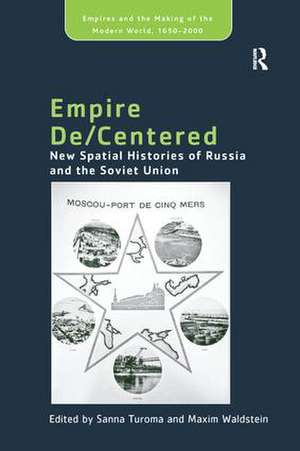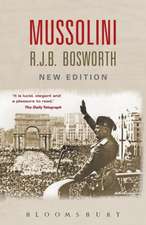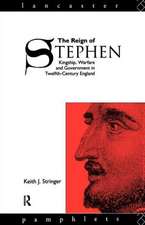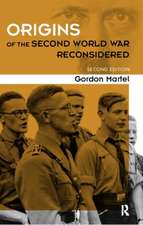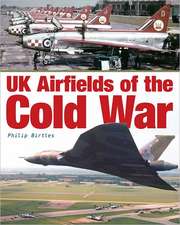Empire De/Centered: New Spatial Histories of Russia and the Soviet Union: Empire and the Making of the Modern World, 1650-2000
Editat de Maxim Waldstein, Sanna Turomaen Limba Engleză Paperback – 25 noi 2016
| Toate formatele și edițiile | Preț | Express |
|---|---|---|
| Paperback (1) | 471.25 lei 6-8 săpt. | |
| Taylor & Francis – 25 noi 2016 | 471.25 lei 6-8 săpt. | |
| Hardback (1) | 1067.35 lei 6-8 săpt. | |
| Taylor & Francis – 30 aug 2013 | 1067.35 lei 6-8 săpt. |
Preț: 471.25 lei
Nou
Puncte Express: 707
Preț estimativ în valută:
90.17€ • 94.34$ • 74.91£
90.17€ • 94.34$ • 74.91£
Carte tipărită la comandă
Livrare economică 02-16 aprilie
Preluare comenzi: 021 569.72.76
Specificații
ISBN-13: 9781138269361
ISBN-10: 1138269360
Pagini: 362
Dimensiuni: 156 x 234 mm
Greutate: 0.5 kg
Ediția:1
Editura: Taylor & Francis
Colecția Routledge
Seria Empire and the Making of the Modern World, 1650-2000
Locul publicării:Oxford, United Kingdom
ISBN-10: 1138269360
Pagini: 362
Dimensiuni: 156 x 234 mm
Greutate: 0.5 kg
Ediția:1
Editura: Taylor & Francis
Colecția Routledge
Seria Empire and the Making of the Modern World, 1650-2000
Locul publicării:Oxford, United Kingdom
Cuprins
Contents: Introduction: empire and space: Russian and the Soviet Union in focus, Sanna Turoma and Maxim Waldstein; Part I Eurasianism and Intellectual Construction of Space: The empire of language: space and structuralism in Russia’s Eurasianism, Sergey Glebov; Between Russia, Ukraine and Eurasia: Georgii Vernadskii’s search for identity, Igor Torbakov; Space as a destiny: legitimizing the Russian empire through geography and cosmos, Marlène Laruelle. Part II Spatial Science and Geographical Knowledge: The mapping of illiberal modernity: spatial science, ideology and the state in early 20th-century Russia, Nick Baron; Regionalization, imperial legacy and the Soviet geographical tradition, Marina Loskutova. Part III Political and Cultural Economy of the (Post-)Soviet Space: The controlled space of socialist internationalism and its transgression: COMECON energy projects between 1970 and 1990, Ulrich Best; The rearrangement of the post-Soviet space and the representation of Russia as a Eurasian bridge, Katri Pynnöniemi; Debating Soviet imperialism in contemporary Poland: on the polish uses of postcolonial theory and their contexts, Tomasz Zarycki. Part IV Representing Empire: Media, Art, Literature: Playing games with Empire: Finnish political imaginaries on the early Soviet state, Anni Kangas; Imperiia re/constructed: narratives of space and nation in 1960s Soviet Russian culture, Sanna Turoma; Picturing infinity: space race and the cosmic landscape, Iina Kohonen; Eccentric orbit: mapping Russian culture in the near abroad, Kevin M.F. Platt; Bibliography; Index.
Notă biografică
Dr Sanna Turoma, Research Fellow at the Aleksanteri Institute, University of Helsinki, Finland. Dr Maxim Waldstein, Amsterdam University College, The Netherlands.
Recenzii
'This is a useful collection of informative and insightful essays that adds to a growing literature on questions of space and empire. The topic is well conceived, and the editors effectively convey its significance in a clear and often provocative manner in their introduction. Specialists will find much of value here, though, given the specificity of the essays, scholars outside Russian and Soviet studies will be rather less likely to explore its contents.' Europe-Asia Studies '... Empire De/Centered is a highly informative volume, which makes a substantial contribution to our understanding of how the Russian and Soviet self has been discursively constructed, challenging a common misperception that in the Moscow-dominated political space, imagined communities could only be defined as either an empire or a nation.' Slavic Review ’A highly engaging collection, Empire De/Centered covers a wide variety of subjects in disciplines ranging from political economy to visual arts. The themes of geographical space, imperial narrative, and national identity hold these diverse essays firmly together. ... this volume will be a valuable and enjoyable read for Slavists as well as for scholars of empire in general.’ Journal of Historical Geography ’The editors of and contributors to this volume are to be congratulated on producing an excellent book...the contributors provide many insights into Russian history and successfully demonstrate how, with its particular spatial configuration, the Russian imperial experience challenges received wisdom concerning modern empires with their metropolises (the ’mother country’) and overseas colonies, and also concerning the concepts of ’nation’ and ’empire’ themselves.’ SEER
Descriere
In 1991 the Soviet empire collapsed, at a stroke throwing the certainties of the Cold War world into flux. Yet despite the dramatic end of this 'last empire' and political commentators consigning the idea of empire to the dustbin of history, new forces filling the vacuum left by the end of the Soviet Union repeatedly draw upon the language and concepts of imperialism. Bringing together a multidisciplinary and international group of authors to study Soviet society and culture through the categories empire and space, this collection demonstrates the enduring legacy of empire with regard to Russia, whose history has been marked by a particularly close and ambiguous relationship between nation and empire building, and between national and imperial identities.
